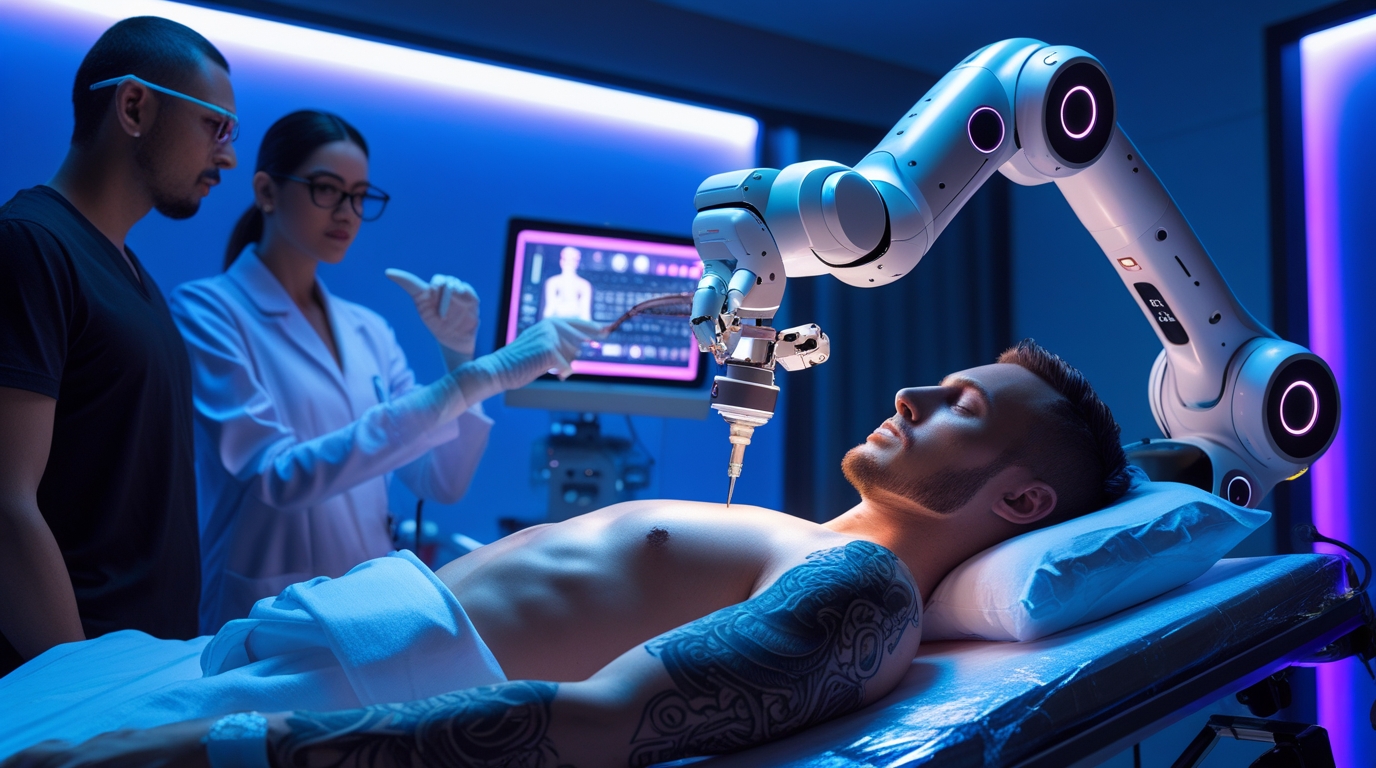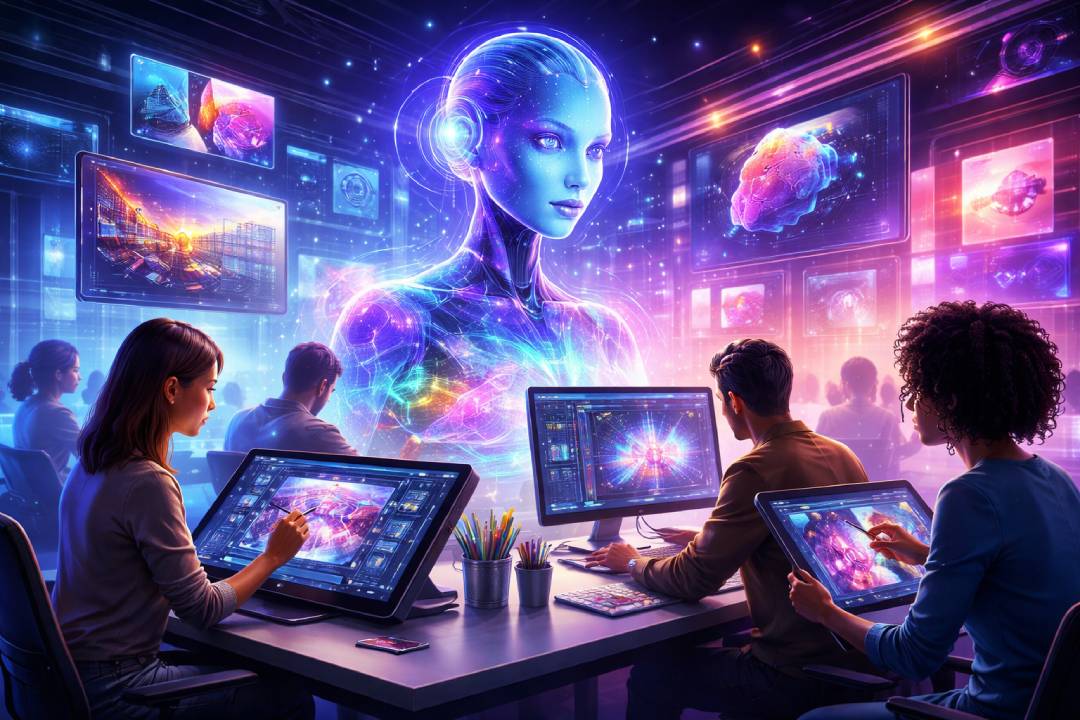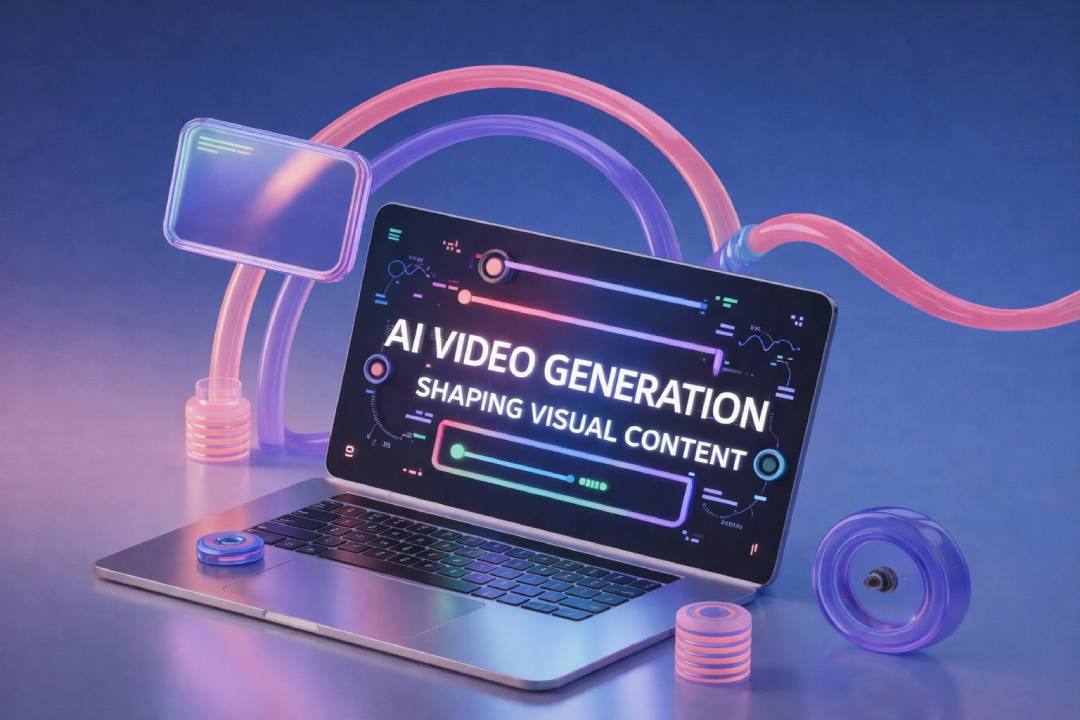Mayumiotero – Tattooing has always been an art that reflects personal identity. With robotic tattoo machines powered by AI, this tradition is entering a new phase. These systems combine machine accuracy with AI pattern recognition. As a result, artists can design and execute tattoos with unmatched precision. Moreover, AI can study skin texture and body curves to ensure designs flow naturally. This reduces the chance of errors while giving tattoos a smoother finish. Importantly, the technology does not replace artists. Instead, it helps them enhance their creativity. Because of this balance between art and technology, the tattoo industry is stepping into a modern era where tradition evolves with innovation.
“Read more: Eco‑AI Fabric: Visual Fashion That Reduces Waste“
How AI Improves Accuracy in Tattoo Designs
Artificial intelligence is the brain behind these machines. Unlike traditional tattooing that relies only on a steady hand, AI analyzes and adjusts designs in real time. For example, if a client moves slightly, the robotic arm recalibrates instantly. This ensures that every line remains clean and balanced. AI also previews the final result before the needle touches the skin. Consequently, clients gain confidence in what they are about to receive. Furthermore, AI can calculate shading, color flow, and line thickness with accuracy. These features once took years of practice to master. Now, with AI, tattoos are more consistent, more symmetrical, and more reliable.
Robotics and the Transformation of Tattoo Experiences
While AI powers the design, robotics delivers the physical performance. Robotic tattoo machines feature responsive arms and programmable settings for depth and speed. This allows them to adjust to different skin types. The result is a smoother tattooing experience with less pain. Unlike humans, robots never tire, which makes long sessions more consistent. Additionally, robotics reduces risks such as uneven ink penetration. Clients benefit from safer procedures and faster healing. Studios also gain an edge by offering a more reliable and professional service. When robotics and AI combine, the experience becomes precise, efficient, and innovative.
Ethical Questions Around Robotic Tattooing
The rise of robotic tattoo machines sparks debate. Some people worry that technology might erase the human bond between artist and client. After all, tattoos often carry deep personal meaning. However, others argue that machines are not replacements but assistants. Cost is another concern. Will this technology stay exclusive to elite studios, or will it become affordable for everyone? Furthermore, AI design raises ownership questions. Who truly owns a design created by a machine: the programmer, the artist, or the client? These issues remind us that innovation must respect both creativity and fairness.
The Future of AI-Powered Tattooing
The future of tattooing looks both exciting and advanced. Robotic systems may soon include biometric sensors that track hydration, skin condition, and healing progress. This would make tattooing safer and more comfortable. In addition, augmented reality could let clients preview designs on their skin before committing. AI could also create personalized tattoos in real time, blending client preferences with artistic input. Instead of replacing artists, these tools will expand their creative limits. With AI handling precision and robotics ensuring steady performance, tattoos will become more personal, more accurate, and more innovative than ever before.



